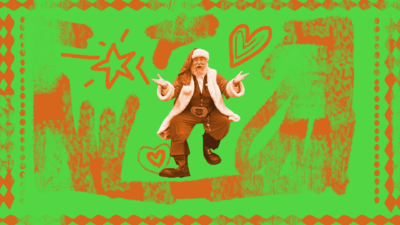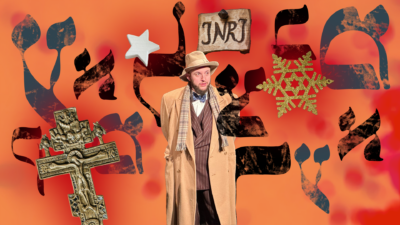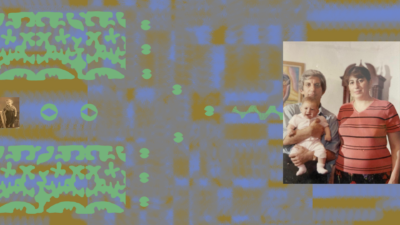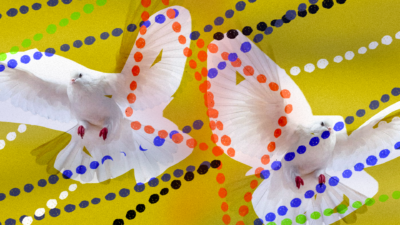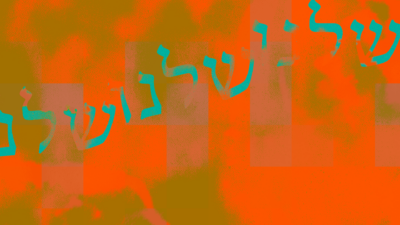Archive
In the Spring of 2024, as a member of my college’s Jewish community, I was invited to two havdole events at the Popular University, which was the pro-Palestinian encampment at my college. The series of havdole events were organized by Jewish members and leadership of the college’s Students for Justice in Palestine to signal to […]
“Remember when we accidentally got proselytized to at a Trans-Siberian Orchestra show? We thought it was gonna be a normal concert and then they started leading us in prayer,” Mom says as she exits our car. I have no memory of such an event, but I fully believe my family fell for a gentile ploy […]
The Nights Before Christmas It was two hours before the Off-Broadway opening of The Gospel According to Chaim, and there was shiml on the bread: that’s Yiddish for mold. Melissa Weisz, one of three actors in the performance, needed the two slices of rye as part of a prop sandwich for a scene during the […]
This piece is featured in our New Beginnings series, exploring the emergent ideas, emotions, and social upheavals of a new era of progressive Jewish culture. We are writing for a brighter future, while honoring our past. More to come. Going to graduate school was supposed to be exciting and liberating, but the Indiana-bound-New York train […]
The names of certain individuals have been changed or altered to protect the identities of student New Voices stands with campus organizers and honors their right to privacy. I furiously paced back from the second vigil in two weeks as the only person to attend both. I wanted to scream at the utter futility […]
This piece is featured in our New Beginnings series, exploring the emergent ideas, emotions, and social upheavals of a new era of progressive Jewish culture. We are writing for a brighter future, while honoring our past. More to come. The Burial Of The Dead How in times of scrutiny and creed We continue to solemnly […]
Art by Tyler Kliem This is the first piece of our New Beginnings series, exploring the emergent ideas, emotions, and social upheavals of a new era of progressive Jewish culture. We are writing for a brighter future, while honoring our past. More to come. * 1:1. When God began […]
This is the first installment in a series examining influential Jewish figures in the modern health movement. It aims to shed light on how their creative visions shaped wellness practices and the ways their Jewish heritage influenced their work. While the titular headstand is far from Moshe Feldenkrais ’greatest achievement, its resonance is undeniable. Many […]
It’s been just hours since Donald Trump was re-elected President of the United States, and for many Jews across America—particularly Jewish progressives and Jewish student activists—the prevailing mood is one of dread. Trump’s victory is both a political shift and a profound moment of reckoning for Jewish institutions, which now face a choice between principled […]
I am writing this as we celebrate Yom Kippur, the day of atonement and the end of the High Holidays. After today we will officially be in the New Year. We will have our souls and our bodies cleansed, weightless like the water in which we tossed our bread crumbs only ten days ago. I […]

